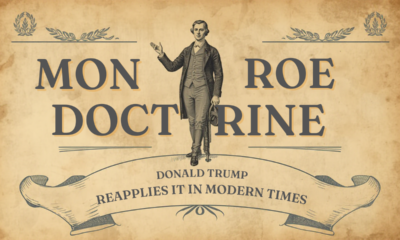Ignite the Pulpit
Christian precept should govern
The best government would follow Christian precept, which tells you not to kill, lie, cheat, steal, or covet. Who could object to that?
The sad death of Elizabeth II, Queen of the United Kingdom, has given human beings an unusual opportunity to reflect. That applies not only to the loyal subjects of the new King (Charles III) but to all Westerners. (And arguably to all other human beings.) It applies because the King, in his days as Prince of Wales, went on record as not ready to be “Defender of the Faith.” (See this article in Express and a princely statement on the matter.) In America, in contrast to the United Kingdom, our citizens must choose to defend the Christian faith – or not. In fact, not only is the Christian faith worth defending, but its defense is a moral imperative.
Defense of the Christian faith and what it means
First and most obvious, defending the Christian faith involves resisting attacks on it. Christian faith and precept have definitely been under attack in America since 1875. In that year, Rep. James G. Blaine (R-Maine), Speaker of the House, proposed to amend the United States Constitution to attack faith directly. Though his amendment failed, he then persuaded thirty-eight States to adopt their own “Blaine Amendments.” (Ironically these States did not include Maine.) These amendments provided that not one dollar – not one penny – of tax funds would ever go to a religious or religiously affiliated institution. Even a program offering subsidies or similar assistance to various institutions must exclude those with any religious connection.
Happily the Supreme Court, in Carson v. Makin, repudiated that stance. At issue was not a State constitutional amendment, but a State law to that effect, in the context of schooling. Two Christian households sued the State, and eventually the Supreme Court forbade the State to discriminate against them. But more to the point, the Supreme Court forbids any State to discriminate against Christian parents or institutions. Under Article VI Clause 2 of the Constitution, that ought to end the matter. It hasn’t – because Christians don’t know their rights, nor appreciate the justice of their cause.
Why should the Christian cause be unjust?
They don’t appreciate the justice of their cause, because generations of post-Blaine civics instructors have taught them wrong. Such instructors cite Thomas Jefferson’s Letter to the Danbury Baptist Association in 1802. In it Jefferson said the Establishment and Free Exercise Clauses of the First Amendment, taken together,
[built] a wall of separation between Church & State.
Now if the rest of the letter advocated for atheism, one could interpret that as James G. Blaine must have. (And as Roger Baldwin, founder of the American Civil Liberties Union, also did.) Which means: government must not only not have a Church of America, but also that government must lend no credence whatsoever to any suggestion that Christianity, or any other faith, represents truth. This has led the federal government and many State governments to act as if faith is prima facie evidence of a delusional state. Thus a believer becomes a danger to himself and others, and under no circumstances should anyone listen to him.
But the rest of the letter does not support such a construction. Jefferson also said (to paraphrase):
- Religion is between God and any human being.
- A human being is accountable to no one else concerning worship, so long as he harms no one else.
- Governments may forbid acts but never opinions.
These points do not advocate atheism, nor imply that faith or worship per se present danger to self or others.
If faith forbids a thing…
Even if detractors of faith don’t want to lock you up (or at least don’t dare say out loud that they want to lock you up), they do say, “We do not legislate morality.” But that proposition lacks foundation.
What is morality, anyway? Morality comes from values. Any decision one makes, depends on value. Values often compete, which means one can’t have everything at once.
So let’s look at the bedrock principles of Christian (and Jewish) faith: the Ten Commandments. Start with the most obvious one, the one with which the fewest people disagree: the Sixth Commandment. This forbids one to take a human life without just cause. In the debate that ended with the repeal of the Eighteenth Amendment, no one at the time proposed repealing any of the homicide statutes. Even today, no one has yet proposed to let someone go on taking lives without consequence. (Not adult or born child lives, anyway.) But one could argue that the Sixth Commandment is merely a moral preference. (Like the Seventh Commandment, that immediately follows it.)
In fact, the Ninth Commandment – against lying about another – forms the basis for our adversarial court system. When you break the Ninth Commandment in a law court, that is perjury. Judges put people in jail for that. No one questions the general power of judges to do this.
The Ten Commandments protect you
More broadly, the Ten Commandments, especially the last five, protect all who live under them. That might seem strange to some people – especially given the lack of moral instruction in Monday through Friday school. But every one of the five, even the Seventh, protects a thing of value. The Sixth Commandment protects your life; the Seventh your marriage; and the Eighth your worldly goods. The Ninth protects you not only in a court of law but also in the court of public opinion. That is also why any society affords some protection for you if someone tells outright lies about you. Lastly, the Tenth Commandment sets a clearer boundary between “yours” and “theirs.”
Sadly, too many of our modern laws break one of more of these Commandments. Even the Sixth Commandment is not immune. In Illinois, beginning next January, if someone takes a life on the spur of the moment, authorities will shortly have to let him walk free without bail. That’s the clearest attack yet on the Sixth Commandment. (So far, that part of the “SAFE-T Act” doesn’t apply to one who plans in advance to take a life.)
Our country’s divorce laws today have set the Seventh Commandment at naught. Courts don’t even consider breaches of that Commandment to be a legal injury they may address.
Concerning theft and covetousness
The Eighth and Tenth Commandments seem to lose more of their force every day. “Welfare laws” constitute institutional theft. When you take from some for the unearned, unpaid benefit of others, you have stolen from them. The outlaws Jesse and Frank James made themselves folk heroes through such behavior. (Robin Hood arguably had justification; he stole back what Norman noblemen had themselves stolen from others.)
Now we hear the argument that, if you have more than another, you must have stolen it from that other. Or else your ancestor stole it from his ancestor. Either way, we see political candidates, and legislators, legitimizing theft and upholding covetousness as a political virtue.
Part of this springs from a woeful misunderstanding of several of the teachings of Jesus Christ. Jesus is not a Socialist. But people infer socialism from frequent attacks against rich people of Jesus’ day. They forget that those people often did come by their riches less than honestly or honorably. (These things happened in the days of ancient Rome, and worse, during Rome’s worst excesses.)
Not that any of this matters – because the same people now legitimizing theft and covetousness, also discriminate against houses of worship and their regular attendees.
The Ninth Commandment has suffered the most curious attack of all. We see authorities now applying it selectively. They accuse their political opponents of lies they never told, and excuse lies others tell about those same opponents.
A Christian society would not allow such things
Obviously a Christian society would never contemplate such abuses. Christian precept tells us that taking life for no better reason than anger (or covetousness) is wrong. It also tells us that marriage is a sacred relationship, upon which no one may intrude. Likewise, it denounces theft, lying (including perjury, libel and slander) and covetousness as wrongs against everyone. One living in a truly Christian society would live under laws affording him (or her) far greater protection.
So where does that leave the critics? What sort of society are they defending? One could argue that they’re not defending society at all, but only a collection of bullies. So the following maxim is true and correct, though in a sense radically different from that in which the late Rod Serling wrote it: a permissive society cannot exist. Certainly no society that permits the things the last five of the Ten Commandments forbid, can long exist.
The first five of the Ten Commandments stand on whether you believe that God is, or is not. That’s a debate for another day. But now you know why Rep. Lauren Boebert (R-Colo.) said the Church must direct the government, not the other way around. And why Christian governance is an ideal, and why CNAV exhorts Christians to seize their present opportunity.
Terry A. Hurlbut has been a student of politics, philosophy, and science for more than 35 years. He is a graduate of Yale College and has served as a physician-level laboratory administrator in a 250-bed community hospital. He also is a serious student of the Bible, is conversant in its two primary original languages, and has followed the creation-science movement closely since 1993.
-

 Civilization2 days ago
Civilization2 days agoMuslim Flags Going Up Quietly Around The Country – They Are Claiming Victory! (Videos)
-

 Civilization2 days ago
Civilization2 days agoIran: Is This a Revolution?
-

 Executive4 days ago
Executive4 days agoWaste of the Day: Throwback Thursday – Tinder for Taxpayers
-

 Civilization2 days ago
Civilization2 days agoThe Man Who Lit the Washington Monument Like a Candle
-

 Civilization4 days ago
Civilization4 days agoAntiliberalism Unites the New Right and Disunites America
-

 Civilization2 days ago
Civilization2 days agoRegime change in Iran
-

 Constitution5 days ago
Constitution5 days agoCalifornia Restricts Free Speech
-

 Guest Columns12 hours ago
Guest Columns12 hours agoFrom ‘Hands Up, Don’t Shoot’ to ‘Drive, Baby, Drive’














